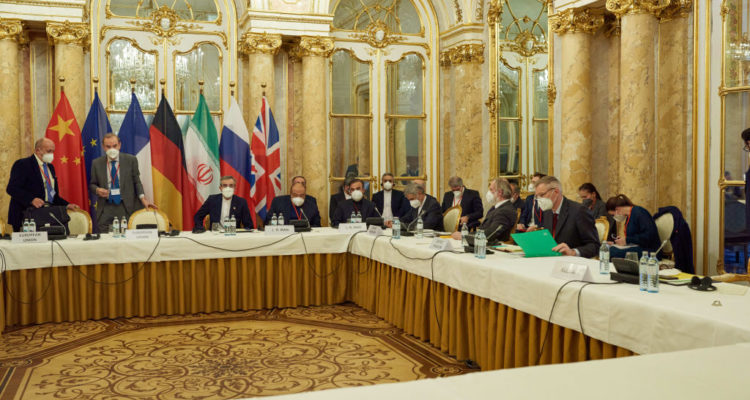Much speculation surrounds the negotiations in Vienna aimed at reviving the Iran nuclear deal (formally, the Joint Comprehensive Plan of Action) as they near their final phase. The latest statements emanating out of Washington signal a cautiously optimistic note. According to a senior US State Department official, the negotiations over the past month ‘were among the most intensive that we’ve had to date … [W]e made progress narrowing down the list of differences to just key priorities on all sides. And that’s why now is the time for political decisions.’
The same official expressed a great sense of urgency that the negotiations be concluded soon since Iran is now very close to ‘breakout time’, meaning it has enough fissile material for a nuclear weapon. ‘[W]e’re talking about weeks, not months,’ the official said.
It appears that the technical issues have been sorted out and it’s now up to the highest authorities in Tehran and Washington to determine how to narrow the gap in expectations on both sides and find a compromise formula. Washington’s apprehensions about Iran reaching breakout point and the Iranian regime’s need to reverse the perilous state of the country’s economy indicate that a compromise agreement is likely to be hammered out soon, possibly in a few weeks’ time.
The prospect of such an outcome has Israeli leaders worried. Although Prime Minister Naftali Bennett’s government has adopted a far less provocative posture towards President Joe Biden’s administration than did Benjamin Netanyahu’s government, its stance on the issue of a return to the JCPOA is pretty much the same. After initially soft-pedalling the issue, Bennett has clearly declared that a revived JCPOA will not be acceptable to Israel:
We must be honest in saying we have disagreements with the United States, our great friend. The way we see it, Iran is playing with a very weak hand and is bluffing. This lie must be exposed, and they must be given a choice—survival of the regime or a continued race to nuclear capabilities, and they must not be given a gift of tens of billions … Either way, even if an agreement is signed, it will not bind us.
Read the article by Mohammed Ayoob in The Strategist.

